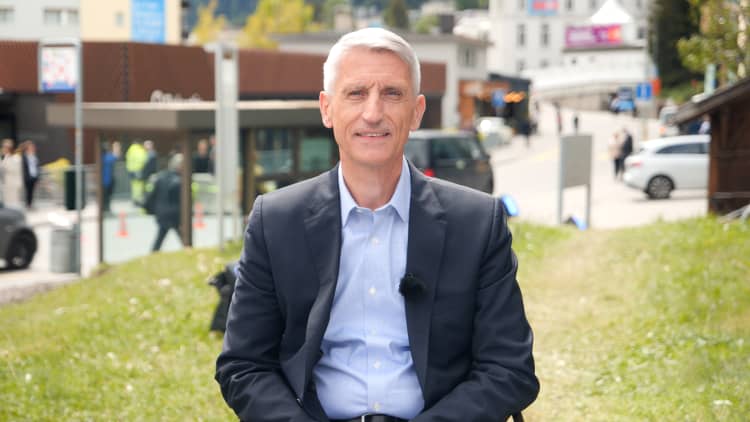In-person work and learning are in full effect as many Americans return to the office and head back into schools this month.
But for many folks, the spread of Covid, flu and other infectious diseases means personal health and safety remains a top priority.
The CDC reports the daily average of new Covid cases in the U.S. is over 65,000. And the total death toll from the virus reached 1 million back in May — and all while other diseases like monkeypox and polio re-emerge in different parts of the country.
Preventative measures on an individual level, like vaccination and masking, can be great protection for students and workers this fall, says Eddie Stenehjem, infectious disease expert at Intermountain Healthcare.
How to stay healthy amid back-to-school, RTO
Get your Covid-19 vaccine boosters
Adults and children over the age of five who have already received the primary Covid vaccine series and the original booster shots are almost as protected as they can be.
The only additional precautions recommended for this group are:
- Getting vaccinated with the new bivalent, omicron-specific booster
- Receiving this season's flu vaccine
"I anticipate that those [omicron-specific boosters and flu shots] can be co-administered," Stenehjem says.
The CDC approved receiving a Covid-19 vaccine and flu shot at the same time.
"There is no recommended waiting period between getting a COVID-19 vaccine and other vaccines," the agency wrote.
But it's important to note that the CDC has yet to recommend getting a flu shot at the same time as a booster with an omicron component, though pharmacies like Walgreens have made it an option.
Stay up-to-date with other important vaccinations
"Now's the time to really assess if you're up-to-date on all of your vaccines, regardless of your age," Stenehjem says. "That obviously includes Covid-19 [and] influenza, but it also includes preventative health vaccines that you would normally get."
Vaccinations the CDC recommends adults should be up-to-date on include: polio, measles, mumps and rubella (MMR), and tetanus, diphtheria, and pertussis (Tdap).
Check in with your doctor to confirm you've received your childhood inoculations and for guidance on next steps for any vaccinations you may be missing.
Per Stenehjem, parents should continue to have their children receive their polio vaccines, following the normal schedule, if their series has not yet been completed.
Assess risk
Although it's an individual choice, Stenehjem recommends risk assessment — which asks people to consider personal risk, community risk and exposure risk, and the steps one can take to ease or prevent the spread of a communicable disease.
Start by checking in with your community's case numbers for circulating diseases, Stenehjem adds.
Epidemiology is local, and knowing what's happening around you can help you assess how susceptible you are to transmitting viruses like Covid, influenza, monkeypox and polio.
"It's not just looking at the epidemiology in the United States, it's looking at the epidemiology of where you live and then basing your interventions upon that," Stenehjem says.
For example, when deciding whether or not to mask in the office you should consider factors like:
- the amount of face-to-face interaction you're expecting to have with your colleagues
- the likelihood of contracting a virus like Covid or the flu
- the likelihood of a severe outcome for yourself or family and friends should one of you become ill
Mitigating risks also means staying home if you're sick, even if you haven't tested positive for Covid-19 specifically. The goal is to reduce the transmission of all infectious diseases, Stenehjem says.
Though that can be difficult for those without childcare or available sick days, he notes.
Ideally, employers and school administrators should have work-from-home policies and remote learning options in place as a preventative measure, Stenehjem says.
He also adds that improved ventilation to filter the air of viral particles in shared spaces would also aid in protection against a virus like Covid-19.
"We should all have a stake in public health, and we should all be concerned about the wellbeing of others," says Stenehjem.
"That's not just in terms of transmitting Covid-19. That's in terms of transmitting influenza, the common cold and the like."
Sign up now: Get smarter about your money and career with our weekly newsletter
Don't miss:



